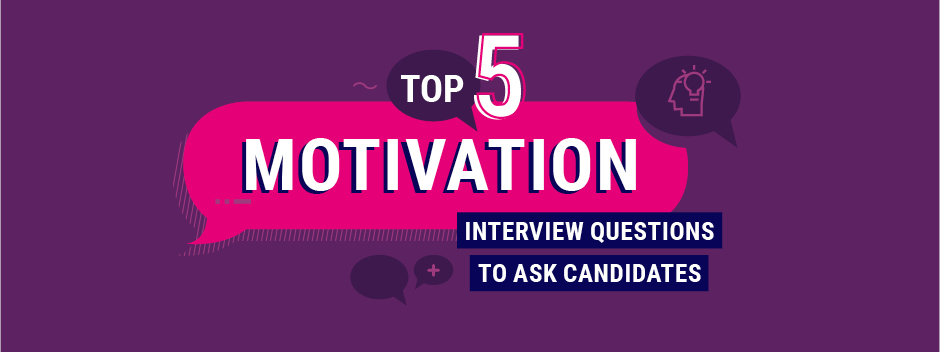When recruiting for a role, there’s much more than skillsets, behaviours and cultural fit to look for among your shortlisted candidates – you should also find out what excites them.
SEEK Talent Acquisition specialist Melanie Whitehouse says knowing a person’s passions enables you gets the best out of them.
Do they desire career progression? Does chasing targets give them a buzz? Are they excellent collaborators?
If they’re driven by money, or are just sick of their old job, what’s to say they won’t leave your company the moment a better offer comes along?
Understanding what they value can be very valuable to your business.
Harrison McMillan Director Dani Cuff says a candidate who is highly motivated to work for your organisation will have lower absenteeism, high retention and high employee satisfaction.
She says changing jobs can be scary and the candidate may put a lot on the line to move companies.
“If their motivations don’t fit with your company,” says Cuff, “you could be setting them up for failure – which is not fair to the candidate and costly to your business.”
Data from the SEEK Interview Builder – which offers a selection of best-practice questions for designing an interview template – revealed questions about motivation made up 37% of all questions asked. That’s more than those relating to skills, behaviour or specific situations.
It identified the five questions interviewers most commonly ask to find the reasons, drive and enthusiasm behind a job application.
The top 5 most-asked motivation interview questions
1) Why are you interested in working at this organisation?
This question is looking to see if they are connected to your business purpose, says Whitehouse.
Someone with a passion for your industry, who can show they are genuinely drawn not just your role but your company’s overall goals, will leave you with a better impression than an answer that suggests any job will do, she says.
2) What’s your understanding of the role and why are you interested?
An interview is a two-way street, reminds Cuff, so the first part of this question is ensuring you both have the same expectations about the role.
The second part seeks to tap into what they value – and help you identify whether you can give them what they are looking for.
3) Tell us about a team you’ve worked in that enabled you to do your best work? What was it about the team that made you do your best work?
This gives an insight into the type of environment your candidate wants, says Whitehouse.
You’re looking for an indicator of how they like to work, what attributes they possess and if your cultures align.
“It’s not just about working well with the team,” says Whitehouse. “You are wanting to understand if they will be able to add value to what is already there.”
4) What work achievement are you most proud of?
Finding out what genuinely delights a potential employee will help you recognise opportunities to ignite that passion, explains Whitehouse.
Did they chase goals? Come up with innovative solutions? Show persistence to overcome a challenge? Do they thrive on personal pride or the public recognition they received?
“You’re not so interested in how well they performed, but why it is they feel proud of what they have achieved. If you uncover this you can understand how and if the candidate will be satisfied in the role you are hiring for “ says Whitehouse.
“What you are listening for is what they are passionate about, what makes them feel like they are contributing to the organisation and what recognition they value.”
Don’t be put off by the candidate that talks about their accomplishment using a ‘we’ rather than ‘I’.
Cuff says while some people are comfortable to talk openly about individual success, others are not. So, if you don’t get the answer you hoped for, dig deeper.
She says hiring managers and recruiters should always keep in mind the possibility of gender, cultural, environmental and personality perspectives influencing a response.
5) What parts of your current role do your really love?
Beware the candidate who hasn’t got a good word to say about their current job, warns Cuff, and listen for answers that align with what your role is offering.
If it doesn’t, your business may not be able to give even the most skilled candidate their best chance to soar.
Cuff says we’re in a competitive market – and that means you should expect their current employer to offer incentives to stay.
If the candidate has walked out excited by what you’ve put on the table, says Cuff, they’re less likely to be tempted by a counter offer.
Motivation matters
Motivation questions are about getting to know your candidate – not just their skill set.
“Candidates are not robots who will just come in day in and day out to do a role,” says Cuff.
“They are people with feelings, so by understanding what drives them you can better understand your people and increase employee satisfaction.”

